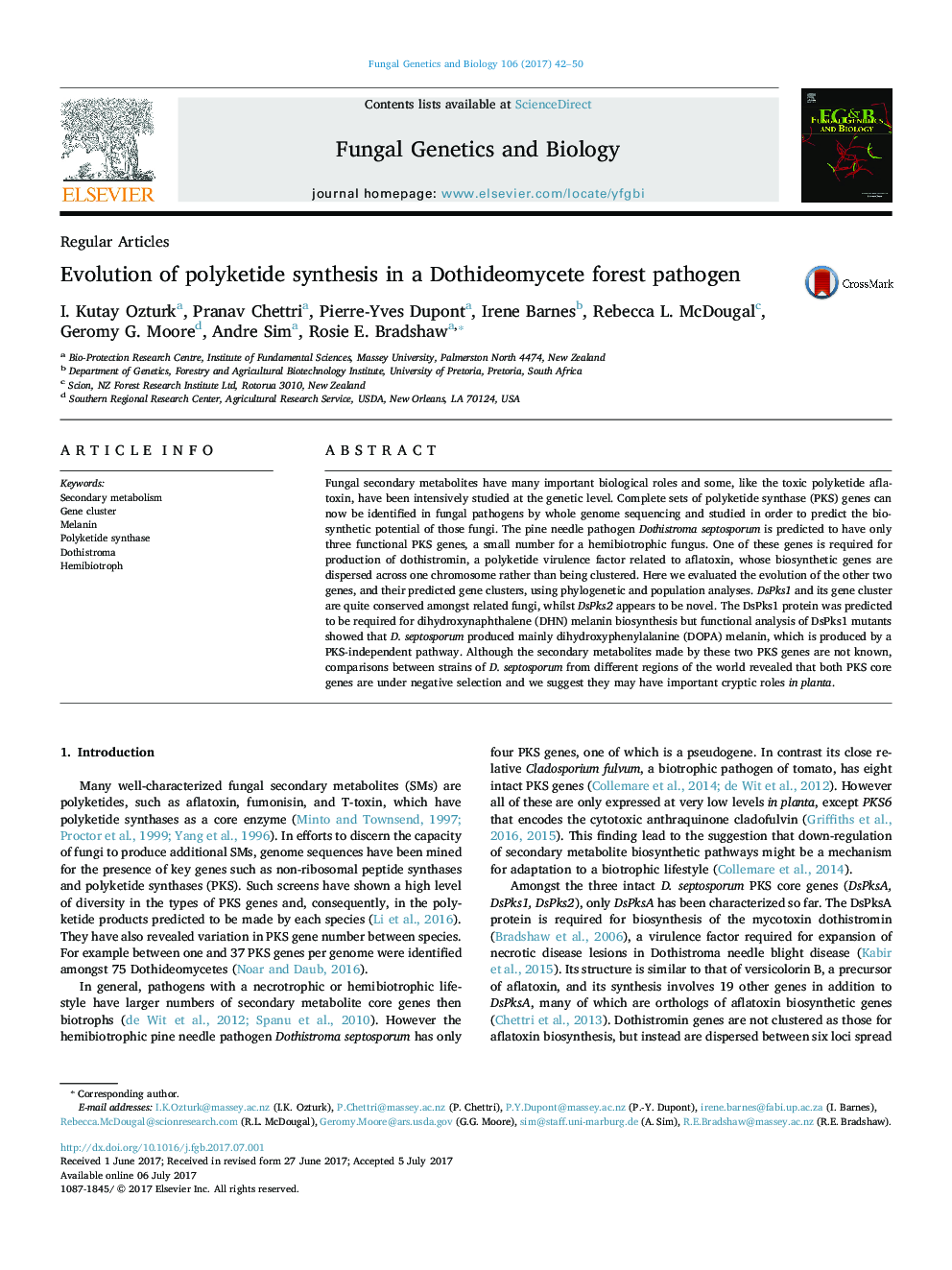| کد مقاله | کد نشریه | سال انتشار | مقاله انگلیسی | نسخه تمام متن |
|---|---|---|---|---|
| 5532728 | 1549985 | 2017 | 9 صفحه PDF | دانلود رایگان |

- The complete set of polyketide synthase genes is described for D. septosporum.
- DsPks1 and its cluster is conserved and predicted to make DHN melanin.
- DsPks2 and its cluster appear to be novel and the product is unknown.
- D. septosporum produced DOPA rather than DHN melanin under conditions tested.
- These Pks genes are under purifying selection, suggesting important roles.
Fungal secondary metabolites have many important biological roles and some, like the toxic polyketide aflatoxin, have been intensively studied at the genetic level. Complete sets of polyketide synthase (PKS) genes can now be identified in fungal pathogens by whole genome sequencing and studied in order to predict the biosynthetic potential of those fungi. The pine needle pathogen Dothistroma septosporum is predicted to have only three functional PKS genes, a small number for a hemibiotrophic fungus. One of these genes is required for production of dothistromin, a polyketide virulence factor related to aflatoxin, whose biosynthetic genes are dispersed across one chromosome rather than being clustered. Here we evaluated the evolution of the other two genes, and their predicted gene clusters, using phylogenetic and population analyses. DsPks1 and its gene cluster are quite conserved amongst related fungi, whilst DsPks2 appears to be novel. The DsPks1 protein was predicted to be required for dihydroxynaphthalene (DHN) melanin biosynthesis but functional analysis of DsPks1 mutants showed that D. septosporum produced mainly dihydroxyphenylalanine (DOPA) melanin, which is produced by a PKS-independent pathway. Although the secondary metabolites made by these two PKS genes are not known, comparisons between strains of D. septosporum from different regions of the world revealed that both PKS core genes are under negative selection and we suggest they may have important cryptic roles in planta.
Journal: Fungal Genetics and Biology - Volume 106, September 2017, Pages 42-50